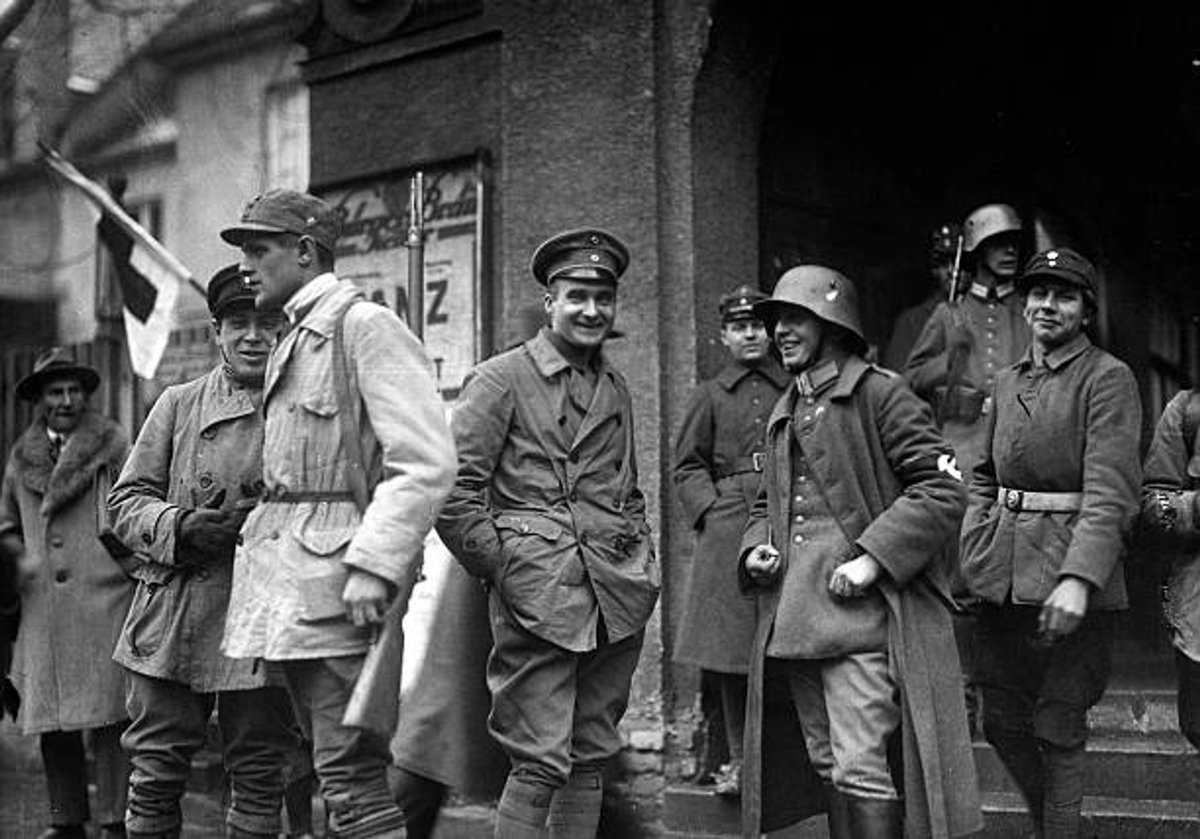Nov. 8, 1923: Adolf Hitler launches his Beer Hall Putsch. The Nazi Party leader and 600 storm troopers seize the Munich building where much of Bavaria’s leadership has gathered, and declare a German revolution. They vow to march on Berlin to establish a new far-right state. 1/10






At 8:25 p.m. Hitler leads a file of followers toward the podium where Gustav von Kahr, Bavaria’s head of state, is making a ponderous speech. The 34-year-old already known as “Führer” fires a shot from a Browning pistol and shrieks, “The national revolution has broken out!” 2/10




Hitler declares the Bavarian and German governments have fallen and the Nazis and their monarchist allies control Munich. This is a bluff, but the 3,000 people who came to hear Kahr speak don’t know that, and they are sympathetic to Hitler’s anti-Communism and antisemitism. 3/10 

Aiding Hitler are Hermann Göring, who leads the SA operation to disperse the police who were protecting the beer hall (formally, the Bürgerbräukeller); Rudolf Hess, who rounds up prisoners at the hall; and Heinrich Himmler, battle flag carrier for a Nazi-allied militia. 4/10






The putschists have every hope of succeeding, as the Weimar Republic has been buffeted by crisis after crisis. The ongoing French occupation of Germany’s industrial Ruhr has fueled hyperinflation. Separatist and Communist revolts have broken out from Aachen to Hamburg. 5/10






Hitler, emulating what his idol Mussolini did in 1922, has decided on a bold strike to seize the reins of government. Like the Fascists, his Nazis are a relatively small faction but are armed, fanatical and driven by hatred and a will to power. 6/10 

Kahr, who recently became “temporary dictator” of Bavaria to tackle its economic crisis, had made allies with Hitler in hopes of wooing his base. How he finds himself a literal prisoner of the Nazis at the beer hall, along wiith Bavaria’s premier and military chief. 7/10 

Hitler sits with the assembled officials and offers to let them join his new German Reich. Kahr can remain dictator of Bavaria. Furthermore, Marshal Erich Ludendorff, a German hero for his WWI leadership, emerges to back the putsch and accepts appointment as military chief. 8/10




The crowd cheers as Hitler, Kahr and Ludendorff walk to the podium, seemingly united. Hitler says they'll "begin the advance against Berlin, that Babylon of wickedness." SA men also seize Bavaria's defense ministry and two arms depots; Hitler departs to oversee these sites. 9/10 

In Hitler's absence, Ludendorff allows the prisoners to leave, certain that they will remain loyal to the fascist revolution. This proves to be a fatal error. As midnight approaches, leaders of the republic in Berlin learn of the putsch and mobilize to regain control. 10/10
• • •
Missing some Tweet in this thread? You can try to
force a refresh

 Read on Twitter
Read on Twitter


























